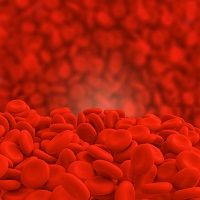NOACs Beat Warfarin for AF
An Italian team looked at using novel oral anticoagulants (NOAC) as an alternative to warfarin. The NOAC drugs are safer, they reported.

Physicians treating atrial fibrillation (AF) often use warfarin to prevent thromboembolisms. An Italian team looked at using novel oral anticoagulants (NOAC) as an alternative.
They found NOAC drugs were safer. Reporting at the American College of Cardiology’s 65th Scientific Session & Expo today in Chicago, IL, Ilaria Gagliardi and colleagues from the Policlinico Umberto in Rome said they had studied 216 AF patients, mean age of 65 with non-valvular AF.
They tracked the incidence of thromboembolic events and incidence of bleeding in a followup at six months.
The subjects were divided into a group of 72 patients receiving warfarin (group A); 72 patients receiving a NOAC as first treatment (group B), 72 patients receiving NOAC after a switch from warfarin (group C).
Among patients with NOAC they also identified four subpopulations according to the drug and dosage received: apixaban 2.5 mg or 5 mg; dabigatran 110 mg or 150 mg.
During the follow-up they found the total ischemic events in the group getting warfarin continuously were about 6% greater than in the other two groups.
Total ischemic events in the group A were about 6% more than the other two groups.
In the group A total bleeding events--especially gastro-intestinal (GI) and major and minor bleeding--were about 11% more than for group B, and 9% more than the group C.
They did not observe differences in incidence of GI major bleeding among the three groups.
The analysis of the four subpopulations of the group B and C showed that apixaban, at any dose, reduced total ischemic events (respectively about 5% in B and 4 % in C) and total bleeding events (respectively about 13,5% in B and 14% in C), especially GI major bleeding and intra-cranial (IC) bleeding, compared to dabigatran.
The team concluded “NOAC are as effective as warfarin in preventing all thromboembolic events but are more secure, with significant reductions of total bleeding events”
Further, they noted “Switching from warfarin to NOAC has not changed the risk of ischemic/bleeding events.”
Finally, they found that apixaban at any dose was associated with a lower rate of bleeding, especially GI and IC, compared to dabigatran.